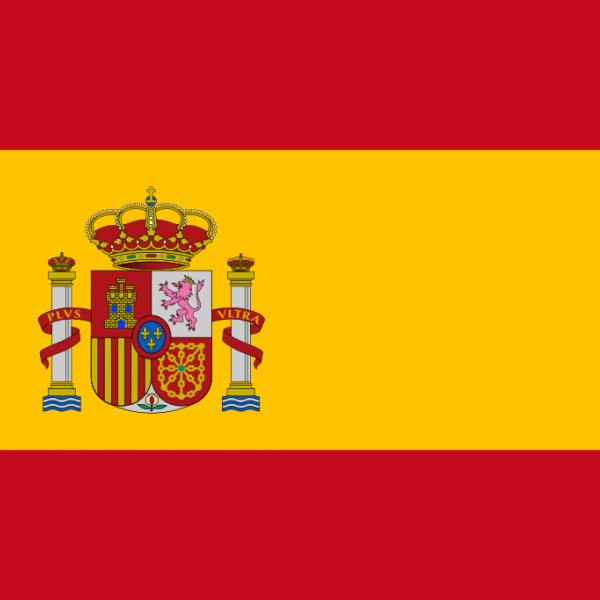Sugar-Sweetened Beverage Tax: case studies
Globally, a number of countries have implemented SSB taxes over the past couple of years. Below are case studies from countries which have implemented an SSB tax.





The aim of this modelling study is to appraise the health effect of various industry responses so that legislation for soft drinks levy can be designed to maximise health gain.
The impact of a ‘soda tax’ on prices: Evidence from French micro data
The aim of this paper is to evaluate the impact of the French ‘soda tax’ on the price of three main product categories of concerned drinks: (i) flavoured waters, (ii) fruits drinks and ready-to-drink teas and (iii) sodas.
This study investigates the acceptance and perception of the taxation scheme launched in France in January 2012.
Taxing sweetened drinks in France
This case illustrates the feasibility of a tax on these products, the revenues of which are allocated to public health and allows us to draw lessons from other jurisdictions considering the adoption of a tax measures to reduce the consumption of sweetened drinks.
Impact of the Berkeley Excise Tax on Sugar-Sweetened Beverage Consumption
This study provides the first evaluation of the impacts of a sugar-sweetened beverage tax in the city through the use of two neighbouring comparison cities.
The objective of this paper is to assess the short-term ability to increase retail prices as a result of the first US sugar-sweetened beverage excise tax.
Advocating for sugar-sweetened beverage taxation: A Case Study of Mexico
This case study presents the different component of the advocacy campaign and steps that led to the implementation of the tax in Mexico.
This study specifically evaluates changes in the purchases of sugar-sweetened beverages after the implementation of the excise tax. It examines the short-term change in purchases of sugar-sweetened beverages one-year post-implementation of the 1 peso per litre tax.
Obesity Prevention: Strategies and Challenges in Latin America
This paper presents the most relevant changes of norms and regulations aimed to reduce obesity levels that have been adopted across Latin American countries.
Sugar-sweetened beverage tax in Pacific Island countries and territories: A discussion paper
This paper presents a summary of evidence-based options to address sugar-sweetened beverages consumption in the Pacific region with a particular focus on taxation.
This study assessed the prices of sugar-sweetened beverages in each quarter relative to the same quarter of the previous year.
Thai Excise Department Implements New Sugar Tax on Beverages
In effect since September 16, 2017, the Thai Excise Department implemented for first time ever, an excise sugar tax on certain beverages to reduce consumption of sugar and to increase health consciousness.
Price elasticity of the demand for sugar sweetened beverages and soft drinks in Mexico
This study aimed to estimate the potential effect of a tax on consumption in Mexico.
The report published by WHO Europe simulates the impacts of sugar-sweetened beverage (SSB) taxes in Ukraine, reiterating its role in reducing the consumption of sugary drinks and incentivising consumers to adopt healthier behaviours. It advises the implementation of uniform taxes (approx. 20%) across all beverages – both for simplicity and due to its effectiveness. The report proposes several alternatives for policymakers and decision-makers, with a corresponding simulation of its impact on consumption and government income.
Taxes on Sugar-Sweetened Beverages: International Evidence and Experiences
This report compiles ‘global evidence on the effectiveness of SSB taxes and summarises international experiences with SSB taxation to date. Between 2015-2020, over 30 countries adopted fiscal policies to regulate the consumption of sugary drinks, with SSB taxes now implemented across 40+ countries around the globe. Yet there are still pockets of inaction where countries have failed to act. The report reiterates the role of SSB taxes in increasing retail prices, raising public awareness, incentivising non-price industry responses, and generating government revenue for health promotion.
This paper compares, and analyses governance challenges related to the adoption of sugar-sweetened beverage taxes in Latin America – with a focus on Mexico, Chile, and Colombia.
Sugar-sweetened beverage taxation in the Region of the Americas
Sugar-sweetened beverage (SSB) taxes are an effective policy option to reach the 2030 Sustainable Development Agenda and to prevent non-communicable diseases (NCDs), including overweight and obesity. To date, they have been implemented across the role to reduce alcohol and tobacco consumption (i.e, behavioural risk factors associated with NCDs).
Taxation can improve population health, generate revenue, and reduce the long-term associated health care costs and productivity losses. This publication authored by PAHO expands on the economic rationale for implementing SSB Taxes, key considerations and lessons learned from designing taxes, an overview of the degree to which taxes alter beverage prices, and more.
Sugar-sweetened beverage taxes: Lessons to date and the future of taxation
Excess sugar consumption has been associated with rising levels of overweight and obesity, including an increased risk of an array of non-communicable diseases (NCDs) including type 2 diabetes, hypertension, heart disease, and common cancers. Over the past decade, research has not only demonstrated its potential influences on overnutrition but rates of undernutrition, in particular stunting. We must also consider the costs affiliated with producing sugary drinks, which disrupt the food system and planetary health because of water use and carbon emissions. The position statement authored by Barry Popkin et all advocates for the implementation of SSB taxation to address the disruptive costs of the world’s supply chains and to promote healthy diets. The statement recommends encouraging the inclusion of ultra-processed foods in these fiscal policies, with revenues generated being used to support individuals living with lower incomes. Efforts to evaluate taxes that have been implemented, including the response of the food industry in these countries should be a priority.


